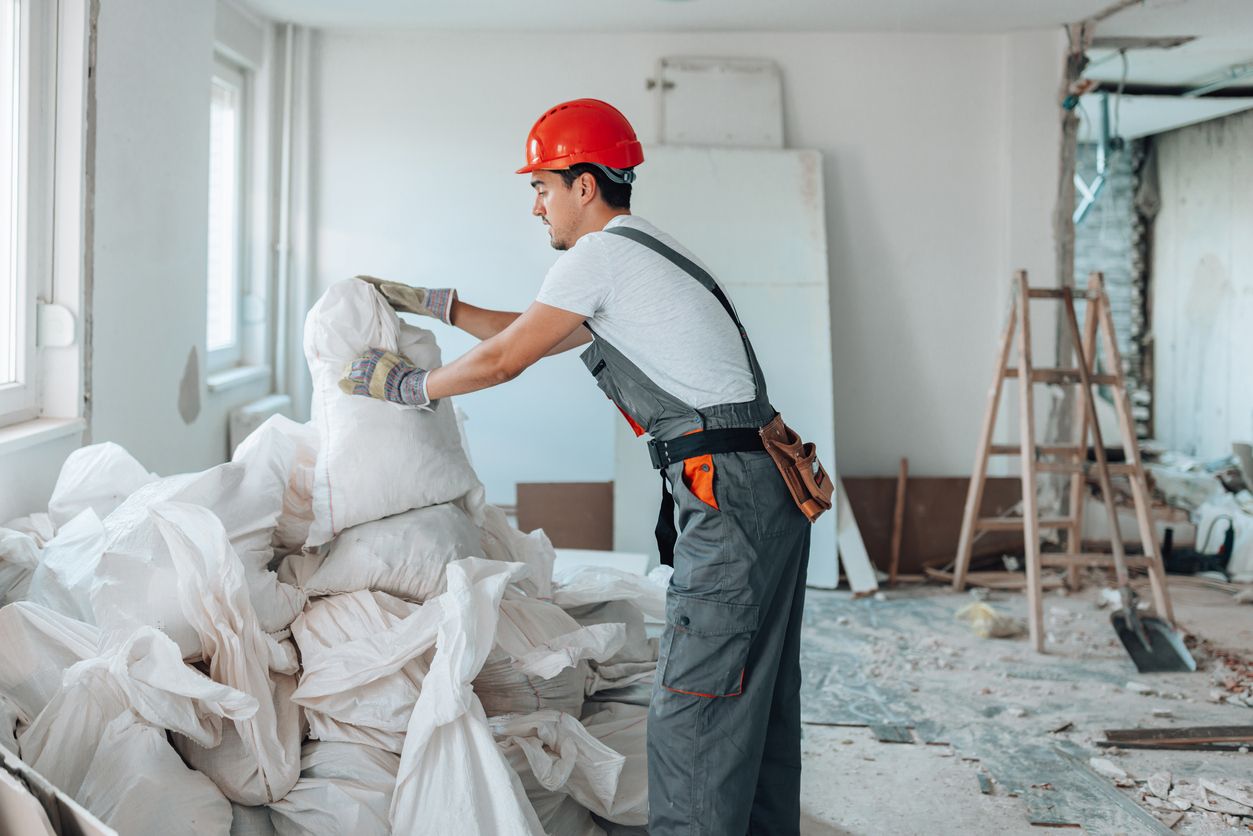Cleaning out a home can feel like a monumental task, especially when you’re staring at years (or even decades) of accumulated stuff. Whether you’re preparing for a move, clearing out a relative’s estate, or just doing a deep declutter, waste management plays a crucial role in making the process smoother and more efficient.
But don’t worry—what seems overwhelming at first can be tackled with the right approach. With a few smart strategies, you can make waste management during residential cleanouts nearly effortless.
Start with a Plan

Before diving into a cleanout, take some time to plan. This doesn’t have to be a complicated blueprint, but having a clear idea of what you want to achieve with waste management will save you time and stress.
Assess the Situation
Walk through the area to be cleaned out and take note of what needs to go. Consider the types of items you’re dealing with—are they mostly large furniture pieces, old electronics, or just a lot of smaller things?
Set Goals
Define what you want to accomplish. Are you aiming to clear out an entire room, or just get rid of the clutter? Having a goal will help you stay focused.
Create a Timeline
Decide how much time you want to dedicate to the cleanout. Spreading the work over several days might make it more manageable.
Sort Before You Toss
One of the biggest mistakes people make is throwing everything away without sorting. Not only does this waste potential resources, but it can also lead to unnecessary expenses.
- Categorize Items: Sort items into categories such as ‘Keep,’ ‘Donate,’ ‘Recycle,’ and ‘Trash.’ This way, you can minimize waste and maximize the reuse of items.
- Consider Donations: Many items that you no longer need could be useful to someone else. Clothes, books, and household goods in good condition can be donated to local charities or thrift stores.
- Recycling Options: Identify items that can be recycled. Electronics, batteries, and certain plastics need to be disposed of in specific ways, so look up local recycling centers that accept these materials.
Use the Right Containers
Proper waste disposal starts with using the right containers. This helps keep the process organized and reduces the chance of creating more mess.
Trash Bags and Bins
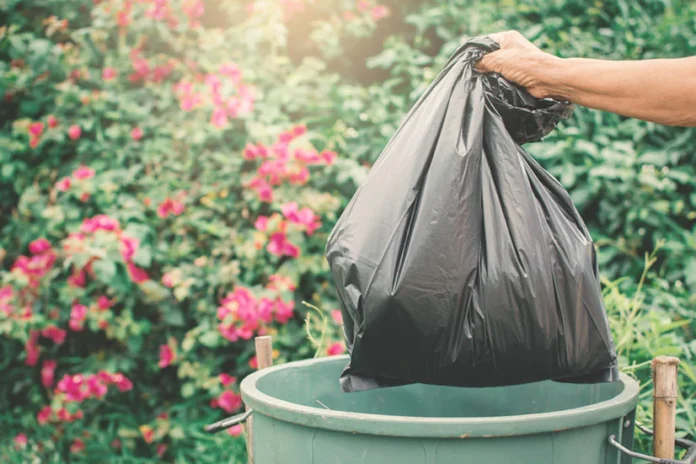
Have plenty of sturdy trash bags and bins on hand. Use different colored bags for different types of waste, like general trash, recyclables, and donations.
Specialized Disposal Bags
For hazardous waste such as paint, chemicals, or broken electronics, use specialized disposal bags or containers that are designed for safe handling.
Label Everything
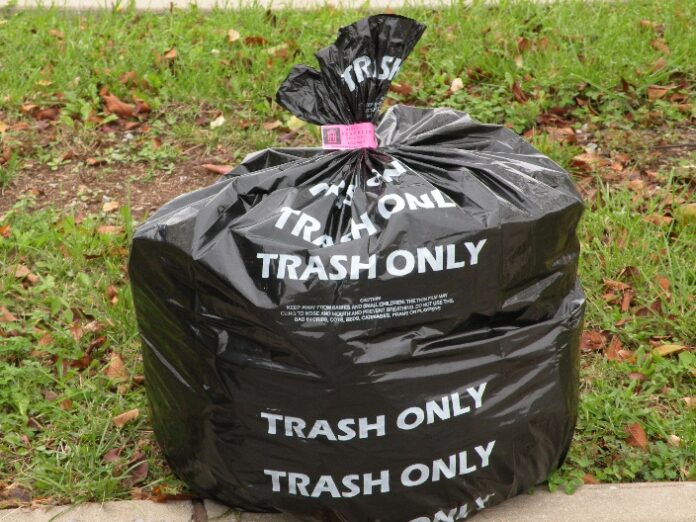
Label bins and bags to avoid confusion and ensure everything ends up where it should.
Rent a Dumpster if Necessary
For larger cleanouts, especially those involving significant amounts of waste, consider renting a dumpster. This can save you multiple trips to the dump and make the cleanout process more efficient.
- Choose the Right Size: Dumpsters come in various sizes, so select one that fits your needs. A 10-yard dumpster is great for smaller projects, while a 20- or 30-yard option may be better for bigger cleanouts.
- Understand the Costs: Dumpster rentals typically come with a flat fee for a certain amount of time, plus additional fees if you exceed weight limits or keep the dumpster longer than agreed.
- Check Local Regulations: Some areas have specific rules about where you can place a dumpster and what you can put in it. Make sure you’re in compliance to avoid fines.
Don’t Forget Hazardous Materials
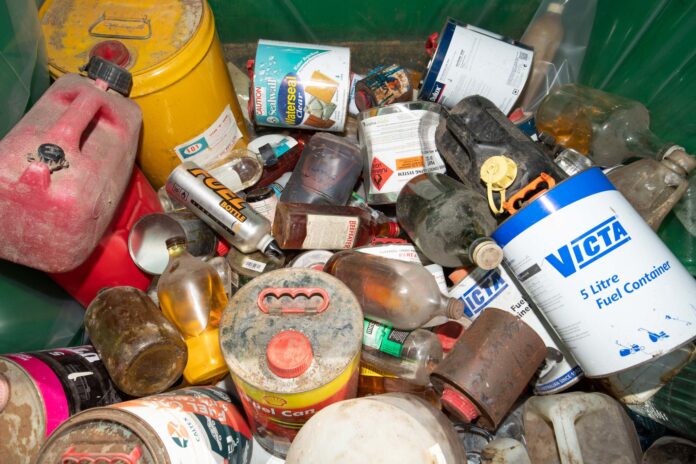
Hazardous materials require special attention during a cleanout. These items can’t be thrown away with regular trash and need to be disposed of properly.
Identify Hazardous Waste
Common household hazardous materials include paint, batteries, cleaning supplies, pesticides, and certain electronics. Separate these from the general waste pile.
Follow Disposal Guidelines
Check local disposal guidelines for hazardous waste. Many communities have specific drop-off days or facilities for these items.
Never Mix Waste
Keep hazardous materials separate from other waste to avoid contamination and ensure safe disposal.
Work in Sections
Breaking down the cleanout into sections can make the process feel less overwhelming. Tackle one room or area at a time instead of trying to do everything at once.
- Start with Easy Wins: Begin with areas that are less cluttered or contain items that are easier to decide on. This can give you momentum for tackling more challenging spaces.
- Set Mini-Goals: Within each section, set mini-goals to keep yourself motivated. For example, aim to clear one closet or a specific pile of items before moving on.
- Take Breaks: Don’t forget to take breaks, especially during larger cleanouts. Regular breaks can help you stay focused and prevent burnout.
Enlist Help
You don’t have to handle a cleanout alone. Enlisting help can make the process faster and more manageable.
Ask family members or friends to help out. More hands make lighter work, and having others involved can make the process more enjoyable.
If the cleanout is particularly large or challenging, consider hiring professional junk removal or organizing services. They can take care of the heavy lifting and ensure everything is disposed of properly.
Stay Organized
Staying organized throughout the cleanout is key to keeping everything on track and ensuring nothing gets missed.
Keep a Checklist
Maintain a checklist of what needs to be done, what’s been completed, and any items that require special attention (like hazardous materials).
Use Clear Labels
Clearly label all boxes and bags, especially if you’re sorting items for donation or recycling. This will make the final steps of the cleanout easier.
Store Items Neatly
As you sort through items you’re keeping, store them in a neat and organized way. Use storage bins, shelves, and labels to keep things tidy and accessible.
In Summary
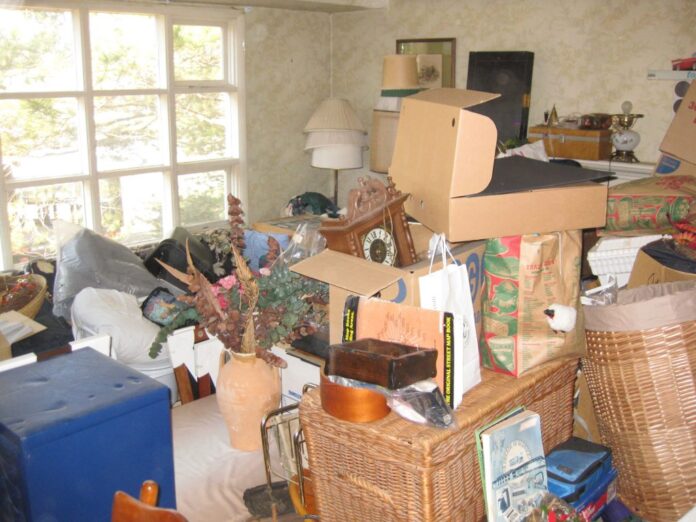
Residential cleanouts can be a daunting task, but with the right approach, they don’t have to be. By planning ahead, sorting carefully, and using the right tools, you can make waste management during a cleanout efficient and nearly effortless. Remember, it’s not just about getting rid of stuff—it’s about doing it in a way that’s organized, environmentally responsible, and stress-free.

